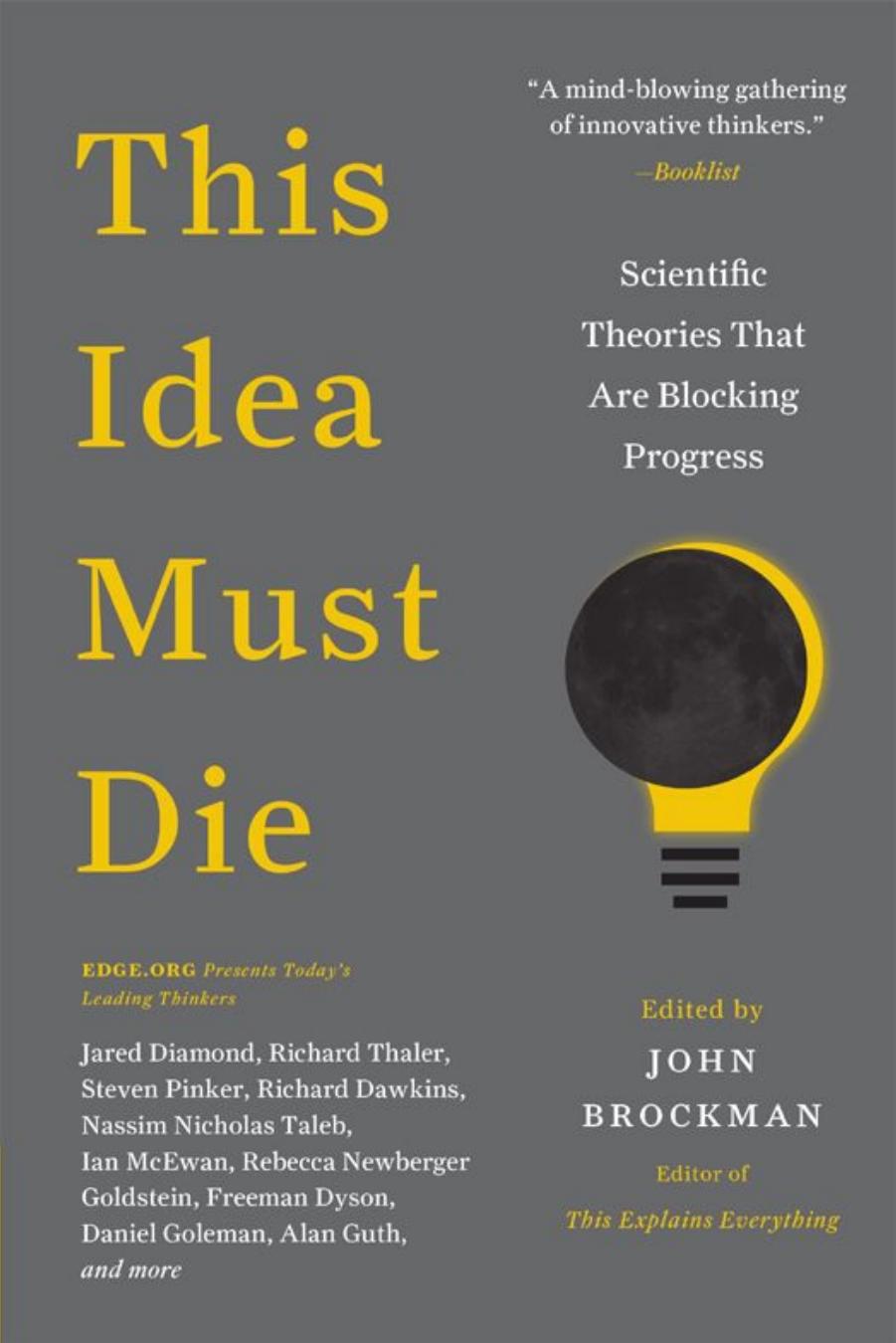This Idea Must Die: Scientific Theories That Are Blocking Progress (Edge Question Series) by John Brockman

Author:John Brockman
Language: eng
Format: azw3, mobi, epub, pdf
Publisher: HarperCollins
Published: 2015-02-17T07:00:00+00:00
BRAIN MODULES
PATRICIA S. CHURCHLAND
Philosopher, neuroscientist, University of California, San Diego; author, Touching a Nerve
The concept of “module” in neuroscience (meaning sufficient for a function, given gas-in-the-tank background conditions) invariably causes more confusion than clarity. The problem is that any neuronal business of any significant complexity is underpinned by spatially distributed networks, and not just incidentally but essentially—and not just cortically but between cortical and subcortical networks. This is true, for example, of motion perception and pattern recognition, as well as motor control and reinforcement learning, not to mention feelings such as mustering courage to face a threat or deciding to hide instead of run. It’s true of self-control and moral judgment. It’s likely to be true of conscious experience. The output of a network can vary as the activity of the network’s individual neurons varies. What’s poorly understood is how nervous systems solve the coordination problem—that is, how does the brain orchestrate the right pattern of neuronal activation across networks to get the job done?
This isn’t all that’s amiss with “module.” Traditionally, modules are supposed to be encapsulated—aka insulated. But even the degree to which an early sensory area such as primary visual cortex (V1) is encapsulated has been challenged. Visual neurons in V1 double their firing rate if the animal is running, no matter the identity of the visual input across conditions (to take but one example). To add to the “module” mess, it turns out that specialization in an area such as the V1 appears to depend to some nontrivial degree on the statistics of the input. Visual cortex is visual largely because it’s connected to the retina and not the cochlea, for example. Notice that in blind subjects, the visual cortex is recruited in reading braille, a high-resolution spatial—and somatosensory—task. As would be expected if specialization depends on the statistics of the network’s input, infant brains have much more plasticity in regional specialization than do mature brains. Doris Trauner and Elizabeth Bates discovered that human infants with a left hemispherectomy can learn language quite normally, whereas an adult who undergoes the same surgery will have severe language deficits.
I think of “module” in the way I think of “nervous breakdown”—mildly useful in the old days when we had no clue about what was going on under the skull, but of doubtful explanatory significance these days.
Download
This Idea Must Die: Scientific Theories That Are Blocking Progress (Edge Question Series) by John Brockman.mobi
This Idea Must Die: Scientific Theories That Are Blocking Progress (Edge Question Series) by John Brockman.epub
This Idea Must Die: Scientific Theories That Are Blocking Progress (Edge Question Series) by John Brockman.pdf
This site does not store any files on its server. We only index and link to content provided by other sites. Please contact the content providers to delete copyright contents if any and email us, we'll remove relevant links or contents immediately.
The Art of Thinking Clearly by Rolf Dobelli(10489)
The 5 Love Languages: The Secret to Love That Lasts by Gary Chapman(9815)
Mindhunter: Inside the FBI's Elite Serial Crime Unit by John E. Douglas & Mark Olshaker(9343)
Becoming Supernatural by Dr. Joe Dispenza(8217)
Nudge - Improving Decisions about Health, Wealth, and Happiness by Thaler Sunstein(7707)
The Road Less Traveled by M. Scott Peck(7603)
Mastermind: How to Think Like Sherlock Holmes by Maria Konnikova(7347)
Enlightenment Now: The Case for Reason, Science, Humanism, and Progress by Steven Pinker(7314)
Win Bigly by Scott Adams(7199)
The Way of Zen by Alan W. Watts(6614)
Factfulness: Ten Reasons We're Wrong About the World – and Why Things Are Better Than You Think by Hans Rosling(4742)
The State of Affairs by Esther Perel(4721)
Gerald's Game by Stephen King(4654)
Man's Search for Meaning by Viktor Frankl(4606)
The Confidence Code by Katty Kay(4262)
Thinking in Bets by Annie Duke(4227)
The Healing Self by Deepak Chopra(3580)
Hidden Persuasion: 33 psychological influence techniques in advertising by Marc Andrews & Matthijs van Leeuwen & Rick van Baaren(3565)
The Worm at the Core by Sheldon Solomon(3487)
